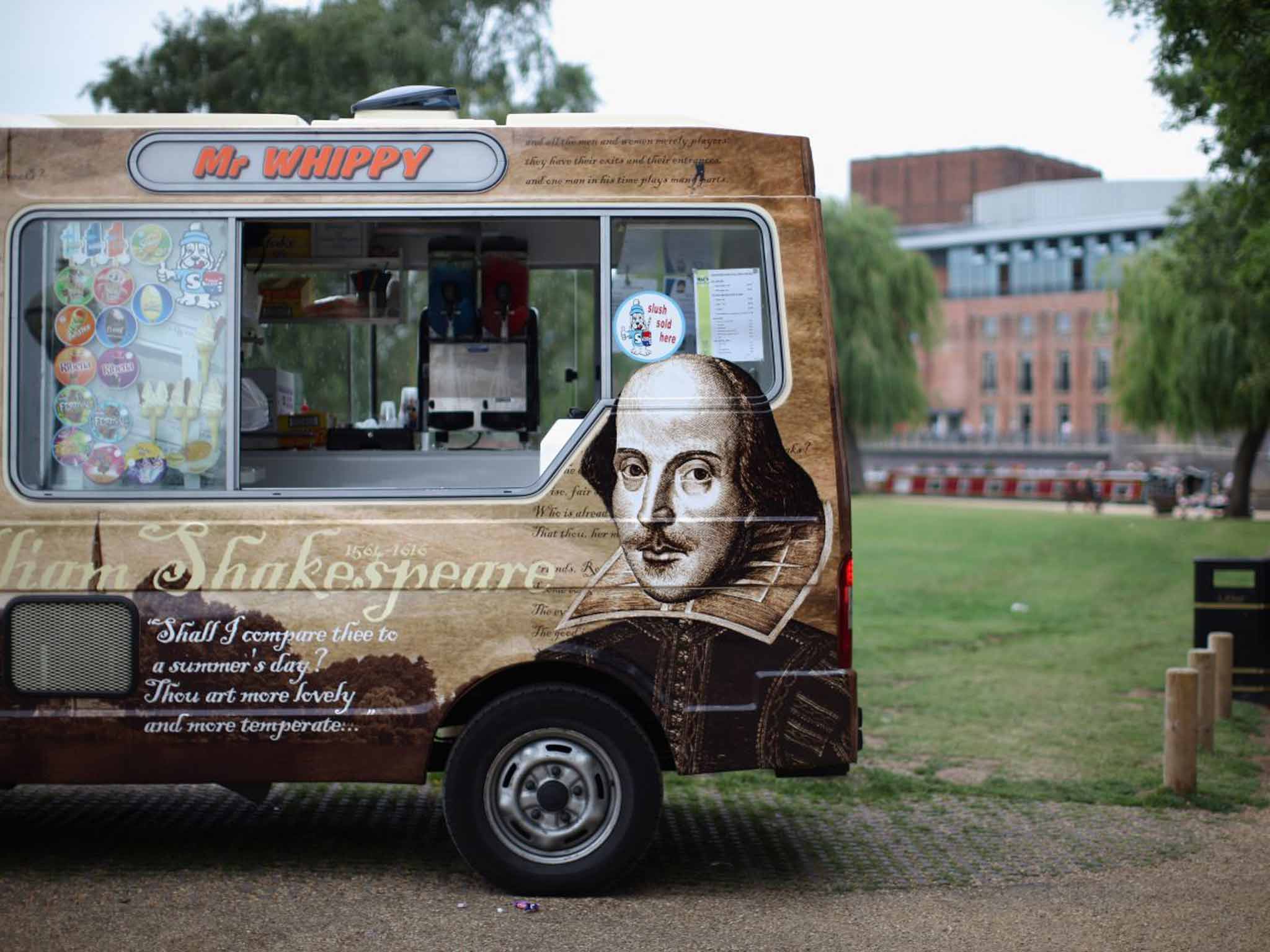Of course Shakespeare stole from others: Week in Books column
It's the year of Shakespeare - the master of reinvention

Your support helps us to tell the story
From reproductive rights to climate change to Big Tech, The Independent is on the ground when the story is developing. Whether it's investigating the financials of Elon Musk's pro-Trump PAC or producing our latest documentary, 'The A Word', which shines a light on the American women fighting for reproductive rights, we know how important it is to parse out the facts from the messaging.
At such a critical moment in US history, we need reporters on the ground. Your donation allows us to keep sending journalists to speak to both sides of the story.
The Independent is trusted by Americans across the entire political spectrum. And unlike many other quality news outlets, we choose not to lock Americans out of our reporting and analysis with paywalls. We believe quality journalism should be available to everyone, paid for by those who can afford it.
Your support makes all the difference.It is the year of Shakespeare again. Four years after the Cultural Olympiad’s mammoth World Shakespeare Festival, April 2016 will mark the 400th anniversary of his death. Exhibitions have been launched. The Vintage Hogarth Shakespeare retold series is underway. Myriad other shows and books will surely appear between now and then.
Will they give us anything new? That is probably not the right question to ask, especially when it comes to Shakespeare, who was, among other things, a Master of Reinvention (a title for another exhibition if it hasn’t been taken?). Retelling stories was central to Shakespeare’s craft. Modern-day concerns – did he “borrow” his ideas from his contemporaries – didn’t bother them half as much as it does us (except for Ben Jonson and his charges against Shakespeare’s “mouldy” tales).
Academics have long appreciated the difference between our ideas of originality and those in Shakespeare’s age. Originality then meant perfecting the art of retelling stories. It was all about how creative a magpie a writer could be. Stories didn’t belong to A or B; they were part of a line of inheritance and reinvention. Audiences knew the plots of most of Shakespeare’s plays – The Tempest is the only storyline source that has not been traced back to another – and they waited to see what kinks and surprises he placed where.
Perhaps this is a far truer notion of originality than our own, with its insistence on the – illusion? – that storylines and characters are invented by certain writers and thus owned by them alone. Professor Gordon McMullan, director of the London Shakespeare Centre at King’s College, reminded me of this distinction as I quizzed him, in my modern-world way, about what, exactly, would be “new” in an exhibition in the East Wing of Somerset House, London, By Me William Shakespeare: A Life in Writing, which opened this week.
“With almost no exception, he got his stories from elsewhere and reworked them in his own way. The point was, everyone did this. The concept of originality, like genius, was invented at the end of the 18th century.”
In fact, says Professor McMullan, what Shakespeare did can be compared to the music industry’s use of sampling about 20 years ago, “when they’d take a Seventies rhythm and add a contemporary beat. That’s what Shakespeare was doing!” So, Shakespeare as the original DJ. Another exhibition idea perhaps, if – again – that has not already been done.
The best part of this exhibition by King’s College is how, through proof of ink on paper, it reveals him to us as a once living, breathing person. There is the legal document that reveals that he did not, in fact, steal the timber of another theatre in the dead of night and scuttle across the Thames with his actors to build the Globe with it. And there is his will that shows how he left money not just to his family and his lawyers but also to the actors whom he regarded as every bit his family. And an affidavit that shows how he lived with immigrant Huguenots in east London and helped to conduct a wedding ceremony for their daughter. It was the year he wrote Measure for Measure, and some see echoes of his life in his fiction.
Of course some of these stories have already been told by the likes of James Shapiro (although Dr Hannah Crummé, a Shakespeare researcher at the National Archives and the show’s co-curator, says more stories might be found as new scientific methods “strip back the years” of the documents). But it is worth a visit simply for the sense of wonder that comes off these pages.
Where would Tolstoy be if art always had to imitate life?
It has also been the week we saw a one-man launch of a literary movement that calls on novelists to use the techniques of Method acting to immerse themselves in the experiences of their protagonists. What would Shakespeare think of Stanislavski’s system, I wonder. Thomas W Hodgkinson explains his theory with a suitable lightness of tone (though he wrote a book, Memoirs of a Stalker, in a cupboard to live the experience!), but if there is an iota of seriousness to it, it would confine novelists to only lived experience. Where does that leave Hilary Mantel with her Thomas Cromwell trilogy, or Tolstoy in his portrait of Anna Karenina? And would they have to live every single character’s life before being licensed to write about them, or could they exercise their imaginations, just a little?
Join our commenting forum
Join thought-provoking conversations, follow other Independent readers and see their replies
Comments